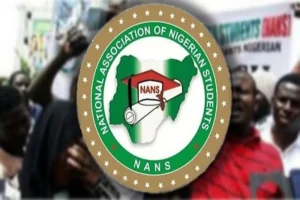Who Created NYSC in Nigeria?
Nigeria, a vibrant nation with a rich cultural heritage, has always sought ways to unify its diverse populace. One of the most remarkable initiatives in this regard is the National Youth Service Corps (NYSC).
If you’ve ever wondered about the origins of NYSC, you’re not alone. This comprehensive guide delves into the history and founding of NYSC, exploring who created this iconic program and why it remains a cornerstone of Nigerian unity. So, buckle up as we journey through time to uncover the story behind NYSC!
The Concept of NYSC: A Brief Overview
Before diving into the creator of NYSC, it’s crucial to understand what the program entails. The National Youth Service Corps (NYSC) is a mandatory one-year program for Nigerian graduates, aimed at fostering national unity and development.
Participants, known as “corpers,” are deployed to various states outside their origin to serve in different capacities, from teaching to healthcare, and much more.
The Birth of NYSC: Historical Context
The creation of NYSC didn’t happen overnight. The program was born out of a need to address the aftermath of the Nigerian Civil War (1967-1970). The war left the nation divided along ethnic and regional lines, and there was an urgent need to rebuild trust and unity among the populace.
Who Created NYSC?
The Man Behind the Vision: General Yakubu Gowon
General Yakubu Gowon, the then Head of State, is credited with the creation of NYSC. Following the end of the Nigerian Civil War, Gowon recognized the importance of fostering unity and integration among Nigeria’s diverse ethnic groups. He believed that the NYSC could serve as a vehicle to promote national cohesion and development.
General Yakubu Gowon: A Closer Look
Early Life and Military Career
Born on October 19, 1934, in Plateau State, Yakubu Gowon embarked on a military career that saw him rise through the ranks rapidly. His leadership qualities became evident early on, setting the stage for his future role as a national leader.
Role in the Nigerian Civil War
Gowon’s leadership was pivotal during the Nigerian Civil War. As the Head of State, he played a crucial role in ending the conflict and initiating the process of reconciliation and reconstruction. His vision for a unified Nigeria laid the groundwork for the creation of NYSC.
The Establishment of NYSC: The Decree of 1973
The Legal Framework
The NYSC was officially established by Decree No. 24 of 1973. This decree outlined the objectives, structure, and operational guidelines of the program. It mandated that all Nigerian graduates participate in a one-year service to the nation.
Objectives of NYSC
The primary objectives of NYSC include:
- Promoting national unity and integration.
- Developing the youth’s sense of responsibility and patriotism.
- Enhancing the equitable distribution of skilled manpower across the country.
- Providing opportunities for self-reliance and development.
The Inaugural Batch: Pioneering a New Era
The first batch of NYSC participants was mobilized in 1973. This group of young graduates embarked on a journey that would set the tone for future generations. They were deployed to various states, where they contributed to national development efforts in different sectors.
Impact of NYSC on Nigerian Society
Fostering Unity and Integration
One of the most significant impacts of NYSC has been its role in promoting unity and integration. By deploying corpers to states outside their ethnic regions, the program encourages cultural exchange and mutual understanding.
Development and Infrastructure
NYSC participants have played a vital role in the development of rural areas. They have contributed to education, healthcare, and infrastructure projects, significantly improving the quality of life in these communities.
Skill Development and Employment
The NYSC program also serves as a platform for skill development. Corps members acquire valuable skills and experiences that enhance their employability. Additionally, the program offers opportunities for entrepreneurship and self-reliance.
Challenges Faced by NYSC
Despite its successes, NYSC has faced several challenges over the years. These include issues related to funding, accommodation, and security. However, the program continues to evolve, addressing these challenges to improve the experience for corps members.
NYSC in the Modern Era
Adapting to Change
In response to changing times, NYSC has introduced various reforms to enhance its relevance and effectiveness. These include the introduction of the Skills Acquisition and Entrepreneurship Development (SAED) program, aimed at equipping corps members with entrepreneurial skills.
Digital Transformation
The digital age has also influenced NYSC operations. The program now leverages technology for mobilization, registration, and deployment processes, making these procedures more efficient and transparent.
Personal Experiences: Voices of Past Corps Members
Success Stories
Many past corps members have shared inspiring stories of how NYSC shaped their lives. From gaining lifelong friendships to discovering career paths, the program has left a lasting impact on countless individuals.
Challenges Overcome
While the journey through NYSC is not without its hurdles, many corps members have emerged stronger and more resilient. Their experiences highlight the transformative power of the program.
Criticisms and Controversies
Mandatory Nature
One of the criticisms leveled against NYSC is its mandatory nature. Some argue that participation should be voluntary, allowing individuals to choose whether they wish to serve or not.
Deployment and Posting Issues
Another common criticism pertains to the deployment process. Some corps members are often posted to states with security concerns or far from their desired locations, leading to dissatisfaction.
The Future of NYSC
Potential Reforms
To address these criticisms, there have been calls for reforms within the NYSC program. Suggestions include making participation voluntary and improving the deployment process to ensure the safety and satisfaction of corps members.
Continued Relevance
Despite the challenges, NYSC remains a relevant and vital program in Nigeria. Its role in promoting national unity and development continues to be invaluable, and with the right reforms, it can become even more effective.

Conclusion
The creation of the NYSC program by General Yakubu Gowon stands as a testament to Nigeria’s commitment to unity and national development. Through its various phases and reforms, NYSC has continued to play a significant role in shaping the nation’s future.
While challenges persist, the program’s positive impact on countless lives and communities cannot be overstated. As Nigeria moves forward, NYSC will undoubtedly remain a cornerstone of national integration and growth.
FAQs
Who was responsible for creating NYSC in Nigeria?
General Yakubu Gowon, the then Head of State, created the NYSC program in 1973 as part of efforts to promote national unity and development following the Nigerian Civil War.
What are the primary objectives of NYSC?
The primary objectives of NYSC include promoting national unity, developing a sense of responsibility and patriotism among the youth, ensuring the equitable distribution of skilled manpower, and providing opportunities for self-reliance and development.
What challenges does NYSC face today?
NYSC faces challenges such as funding issues, accommodation problems, and security concerns. The program continues to evolve to address these challenges and improve the experience for corps members.
How has NYSC adapted to modern times?
NYSC has introduced various reforms, including the Skills Acquisition and Entrepreneurship Development (SAED) program and leveraging technology for mobilization, registration, and deployment processes.
What impact has NYSC had on Nigerian society?
NYSC has significantly impacted Nigerian society by promoting unity and integration, contributing to rural development, and providing skill development and employment opportunities for the youth.
If you think there’s been a mistake here, please do let us know by commenting on this post or Contact Us. And a member of our Content Integrity Team will review this decision with you.





